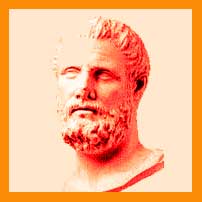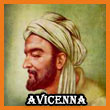
Dr. ROY MEDICAL HALL
Jaffer Khan Colony | Calicut | Kerala | IndiaSexologist Doctor - Sexology Clinic
+91 9349113791
Established in 1960

Dr. ROY MEDICAL HALL
Jaffer Khan Colony | Calicut | Kerala | IndiaSexologist Doctor - Sexology Clinic
+91 9349113791

Hippocrates was the first to separate medicine from philosophy and to disprove the idea that disease was a punishment for sin. Much of the traditional treatment for injuries and ailments stemmed from folk medicine, a practice that uses the knowledge of herbs and accessible drugs, collected piece by piece through the ages, to cure everything from toothaches to infertility.
The father of modern medicine.....
 The UNANI الطب اليوناني system of medicine originated in Greece and the term UNANI is derived from 'UNAAN', in Arabic, Hindustani, Persian, Pashto, and Urdu means Greek.
The UNANI الطب اليوناني system of medicine originated in Greece and the term UNANI is derived from 'UNAAN', in Arabic, Hindustani, Persian, Pashto, and Urdu means Greek.
For 'Greece'. The theoretical framework of UNANI medicine is based on the work of Hippocrates (460-377 BC) by his method of careful study and comparison of symptoms, he laid down the foundation for clinical medicine based on diet and rest. He advocated that the chief function of a physician is to aid the natural forces of the body in combating disease.
Unani medicine is an alternative approach to medical treatment that is practiced largely in India and whose principles are not dissimilar from those of Ayurveda Medicine.
The Unani system follows the humoral theory which postulates the presence of four humoral in the body: -
Dam [BLOOD] Balgham [PHLEGM] Safra [YELLOW BILE] Sauda [BLACK BILE]
A PARALLEL TO KAPHA, VATA, AND PITTA, THE THREE DOSHAS IN AYURVEDA
 Several Greek scholars after Hippocrates such as Galen (131-200 AD) followed by Arab physicians like Rhazes (850-932 AD) and Avicenna (980-1037 AD), enriched the system considerably.
Several Greek scholars after Hippocrates such as Galen (131-200 AD) followed by Arab physicians like Rhazes (850-932 AD) and Avicenna (980-1037 AD), enriched the system considerably.
Rhazes and Avicenna authored Al-Hawi and Al-Qanun respectively, which were compilations of their observations. These were later translated into Latin and other European languages and taught in medieval European universities. They are said to have greatly influenced Western medical thought.
GROWTH IN INDIA Unani may have disappeared from the country of its origin, but it has found its root in India. Arab traders, who entered through the Western Ghats long before Moghuls, introduced Unani here. The Khiljis, Tughlaqs, and the Mughal Emperors provided state patronage to Unani scholars and even employed some as court physicians.
Unani may have disappeared from the country of its origin, but it has found its root in India. Arab traders, who entered through the Western Ghats long before Moghuls, introduced Unani here. The Khiljis, Tughlaqs, and the Mughal Emperors provided state patronage to Unani scholars and even employed some as court physicians.
Unani experienced its heyday between the 13th and 17th centuries with the contributions of Abu Bakr bin Ali Usman Ksahani, Sadruddin Damashqui, Ali Geelani, Akbar Arzani, and Mohammad Hashim Alvi Khan. They subjected Indian drugs to clinical trials and added numerous native drugs to their system, further enriching its treasures.
The British period saw the strictest restrictions imposed on any system of treatment other than allopathic. But despite these and the suspension of all aid to UNANI institutions, the system survived due to the commitment of Hakims like Ajmal Khan in India.
The Unani attained phenomenal growth in terms of opening more educational institutions, the establishment of the Central Council of Research in Unani Medicine [CCRUM] Central Council of Indian Medicine [CCIM] National Institute of Unani Medicine [NIUM]
HOW UNANI WORKS
The essential constituents and the working principles of the body, according to Unani, can be classified into seven main groups:-
Arkan or elements comprising earth, water, air, and fire as different states of matter and the building blocks of everything in the universe; Mizaj (temperament); Akhlat (humours); Aza (organs); Arwah (life, spirits, or vital breaths); Quva (energy); and Af'al (action).
Each of the four elements has its special qualities: the earth is cold and dry; water is cold and moist; fire is hot and dry; the air is hot and moist. The resultant quality of the uniform body is called its Mizaj.
The temperament of a substance may be a Mizaj-E-Mutadil (balanced one) or a Mizaj-E-Ghair-Mutadil (imbalanced one). Different types and shades of imbalanced temperaments are described in Unani, which believes that at birth every person is endowed with a unique and healthy Humoural constitution determining the temperament of an individual.
Unani also postulates that the body contains a self-preservative power, which strives to restore any disturbance within the limits prescribed by the constitution or state of the individual. The physician merely aims to help and develop rather than supersede or impede the action of this power.
Besides the use of herbs for treatment, Unani medicine employs a variety of other techniques intended to cleanse the body and restore Humor balance. These techniques include:
Mushil (Purging)
Taareeq (Sweating)
Hammam (Bath Therapy)
Munzij (Ripening)
Mahajim (Cupping)
Riyazat (Exercise)
Of these, purging is among the most common as Unani medicine often considers imbalances to be the result of metabolic changes in the body. Mushil attempts to convert the impurities formed from these changes into tangible matter that can be expelled from the body by the purging process.
"An Unani physician does not prescribe the strongest drug at the beginning of the treatment. He selects the drug according to the degree of variation from the normal healthy condition and observes the effect produced by the treatment. At the same time, he instructs the patient to observe some restrictions in diet and lifestyle."
This is necessary as the therapeutic effect of these mild drugs may be counter-balanced to an extent by a faulty diet or lifestyle. Particular care has to be taken while treating a 'hot', 'cold', 'dry' or 'moist' disease with food or drug of the opposite quality.
Since in Unani, health, and disease depend on the equilibrium or imbalance between the four humoral also, a thorough examination of the pulse is undertaken to determine which humour is dominant at the time. The examination of the urine is the next important step. Its color, taste, viscosity, whether it has froth on its surface if the bubbles formed are large, indicating Balgham, or smell, indicating Safra, are scrutinized. The stool is also examined similarly. Some Unani physicians also examine the blood pressure and use stethoscopes to study breathing and heart sounds.
The role of MIZAJ in the Diagnosis of Disease in the UNANI System of Medicine, Prof. S. NAFEES BANO, M.D. (OBG) - Principal, H.S.Z.H. Govt. Unani Medical College, Bhopal - Saturday, 11th February 2017 - National Seminar on Diagnosis - 10th to 12th February 2017 - Central University of Tibetan Studies, Sarnath, Varanasi - Organised by Department of Sowa Rigpa, CUTS
MODERN RESEARCH
Unani is unmatched in treating chronic diseases like arthritis, asthma, mental, cardiac, and digestive disorders, and urinal infections and recent research has proved that Unani medicines are highly effective in treating diseases like malaria, and hepatitis B, leukoderma, and skin problems.
Unani is also said to be effective in increasing immunity levels in AIDS patients. Ziabetus or diabetes in its early stages is fully curable using Unani. Its efficacy in treating sexual disorders remains unrivaled.
Unani medicines permanently and effectively cure every sexual ailment, even sterility in women. Unlike modern medicines like Viagra and its Indian variants which have harmful side effects, Unani also improves the general health of the person.
Today there are 40 undergraduate and postgraduate colleges teaching Unani medicine in India. These accords BUMS (Bachelor of Unani Medicines and Surgery). Several colleges have recently introduced postgraduate courses in Unani and give MD degrees in Ilmul Advia (Pharmacology), Moalijat (medicine), and Kulliyat (basic principles) as well as Jarahat (surgery) at Ajmal Khan Tibbiya College, Aligarh, and in Moalijat, Amraz-e-Niswan (gynecology) and Amraz-e-Atfal (pediatrics) at Government Nizamiah Tibbi College, Hyderabad. Several other colleges including the Faculty of Medicine (Unani) at Hamdard University and Ayurvedic and Unani College at Karol Bagh in Delhi have introduced such postgraduate courses.
There are over 150 Unani hospitals and 1,500 Unani dispensaries spread across 18 states of India. There are around 50,000 Unani physicians in the country and most of them are practicing physicians. Unani now forms an integral part of the national health care delivery system and is recognized by the WHO as one of the alternative systems of medicines. The Unani medicine is effective and easily available.
Following the global trend of rising interest in alternative and natural systems, Unani is also drawing attention in various countries and is being practiced, taught, and researched under its local names in over 20 countries including Afghanistan, China, Canada, Denmark, Germany, Finland, Netherlands, Norway, Poland, Korea, Japan, Saudi Arabia, Sweden, Switzerland, Turkey, UK, and the USA.
ARE UNANI DRUGS SAFE?
All the drugs used in compound formulations are made of Herbal, Mineral & Animal origin. These drugs are prepared according to the specific process & methods and hence are safe & non-toxic. There are no known side effects of this form of treatment. The medicines administered go well with the temperament of the patient, thus accelerating the process of recovery and also eliminating the risk of drug reaction.
WHAT CAN UNANI CURE?
Unani is found very effective in treating chronic diseases like Diabetes, arthritis, asthma, mental, cardiac disorders, urinal infections, and all types of sexual diseases. It is also found effective in Indigestion, Acidity, Flatulence, Diarrhoea, Dysentery, Bronchitis, Coryza, Catarrh, Abdominal pain, and other ailments. Unani medicine has that broad perspective. Its approach to the problems of patients is individualistic and the therapy encompasses all aspects of a patient's life.
SOME MISPERCEPTIONS
Most of the practicing Unani physicians in India are Muslims. Though there are also many practitioners from other communities, most people think of Unani as solely a Muslim system of medicine.
Unani is a well-developed medical science and has nothing to do with Islam or Muslim culture and the number of students from other communities studying in Unani medical colleges in South India and they are not only going for undergraduate courses but postgraduate courses as well.
Unani is used by both rich and poor, educated and illiterates, men and women alike. Unani medicines are comparatively expensive but this is due to the careful selection of herbs and other natural ingredients, which are costly and scarce. These medicines are free from side effects, even modern scholars and new generation youngsters opt for them. Only the real and recognized medicines suit modern man’s habits and temperament.
Unani is all set to benefit enormously from people's newfound love for herbal and natural systems of medicine.
Related links...
Central Council of Research in Unani Medicine
Central Council of Indian Medicine
National Institute of Unani Medicine
MOBILE
+91 93491 13791
+91 88484 73488
|
Click for Online Consultation Form
|